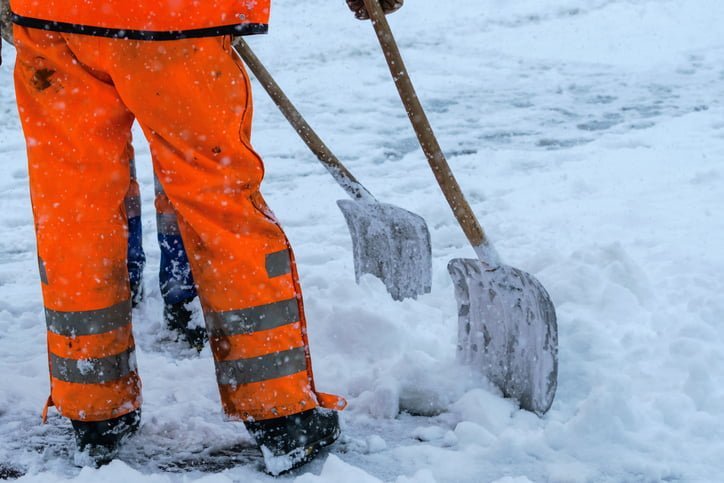
Building snowmen, going sledding, snowball fights, and days off from school might make some look forward to winter weather. But those who have to work in a winter wonderland might not embrace snow in the forecast with such joy. If this pertains to you, there are things you can do to protect yourself and your work station from the hazards of winter weather.
- Avoid icy conditions. If you don’t have to go into work when there’s ice or snow on the roads, don’t! If it’s unavoidable, drive carefully and slowly. If you have snow tires, be sure to use them. Work on scaffolding should be suspended if at all possible. Watch out for black ice and places that might freeze before the ground does.
- Be mindful of frozen pipes. We know it’s not always possible to protect exposed pipes from the elements. If your pipes freeze, make sure they are thawed by a trained employee using approved methods (such as space heaters or a heat gun).
- Maintain machinery. Always check to make sure that heavy machinery has not been affected by the cold — especially equipment such as cranes that might require climbing. If ice accumulates on the ladder, it could cause you to slip and fall.
- Dress appropriately. If you work outside, be sure to dress warmly: coat, hat, gloves, boots.
- Take breaks to warm up. If you find yourself unable to feel your hands or feet, are having difficulty moving them, or are unable to stop shivering, take a break to go warm up! Hypothermia and frostbite are serious conditions, and you should take precautions against them. If you develop hypothermia or frostbite while on the job, you could be eligible for workers’ compensation.
When it comes to winter weather, don’t take chances. The best thing is to use precaution and your best judgment. If something seems unsafe, don’t do it. Your health and safety is more important than any job. If you have any questions, feel free to contact one of our experienced attorneys for a free consultation.









